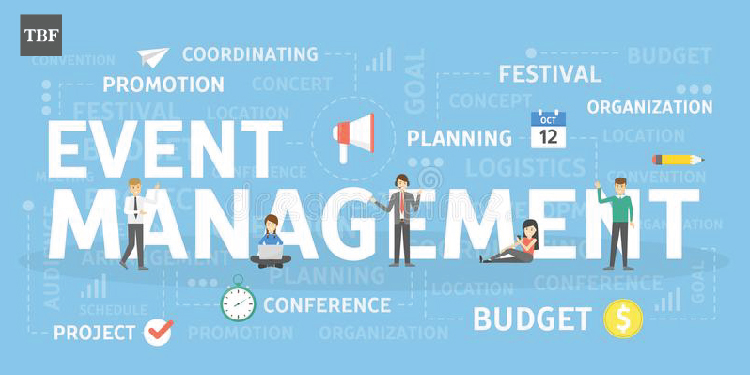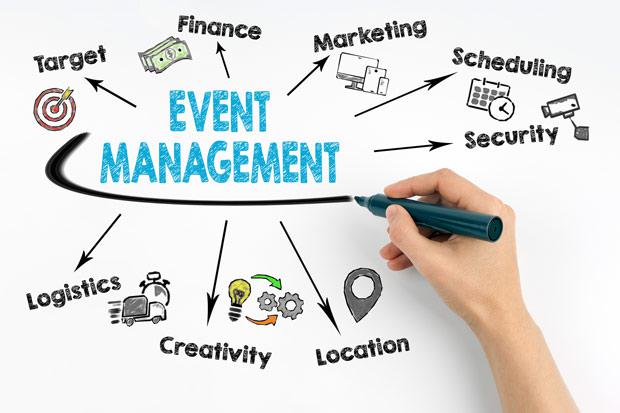How charlotte event companies manage last-minute changes during events
Wiki Article
A Deep Dive Into How Event Management Functions to Produce Memorable Experiences
Event management is an intricate self-control that combines different elements to craft remarkable experiences. It needs a clear understanding of the event's objective and audience. Planners have to browse budgeting, logistics, and marketing to assure a smooth implementation. Each part plays an essential function in achieving the wanted impact. The trip does not finish with the event itself. There are understandings to uncover that can shape future undertakings.The Fundamentals of Event Management
Reliable event management incorporates a series of vital concepts that guide the preparation and implementation of successful events. At its core, it entails understanding the event's function, target market, and desired results. Recognizing the target demographic is important, as it educates decisions connected to content, advertising, and logistics.Budgeting is an additional fundamental element, ensuring that sources are alloted efficiently while meeting the event's goals. This consists of planning for unpredicted costs that may develop.
Time management plays an essential duty, as event supervisors have to develop a comprehensive timeline to collaborate different tasks and landmarks.
In addition, reliable interaction amongst stakeholders, suppliers, and group participants is important to ensure placement and stay clear of misconceptions.
Threat management must be considered, with contingency strategies in location to attend to prospective challenges, therefore boosting the general experience for guests and assuring a seamless execution of the event.
Key Duties in Event Planning
In event preparation, comprehending vital duties is necessary for successful implementation. The event planner is in charge of supervising logistics and making sure all facets line up with the vision. Additionally, reliable vendor management is crucial for keeping top quality and promoting strong collaborations throughout the planning procedure.Event Planner Obligations
An event organizer orchestrates the complicated components of event planning, making certain seamless implementation from conception to verdict. They are in charge of conceiving the event theme, establishing budgets, and producing timelines to maintain the job on course. Control with stakeholders, including customers, venue managers, and volunteers, is vital to align expectations and promote communication. The organizer likewise oversees logistics, such as food catering, transportation, and technology needs, guaranteeing all components function harmoniously. They carry out site sees, take care of timetables, and troubleshoot concerns that may emerge during the event. Post-event, the organizer evaluates the event's success, gathering feedback and examining results to educate future tasks. This complex duty needs solid business abilities, focus to information, and reliable social interaction.Supplier Management Basics
Guiding with the landscape of supplier management is essential for successful event preparation. Reliable supplier management entails determining, choosing, and collaborating vendors that give essential solutions, such as catering, audiovisual support, and decoration. Event organizers have to maintain strong communication with suppliers to assure that all facets straighten with the event's vision. Trick duties consist of the supplier manager, that oversees contracts and arrangements, and the logistics planner, in charge of on-site configuration and execution. It's necessary to establish clear expectations and timelines, fostering a collective environment that boosts the total experience. By focusing on these elements, event organizers can browse prospective challenges, ensuring that every information contributes to a smooth and unforgettable event.Crafting a Vision: Idea Development

When a vision is established, it becomes important to equate it right into actionable parts. This consists of specifying the atmosphere, choosing suitable venues, and establishing the event's style. Collaborating with stakeholders, consisting of enrollers and companions, even more refines the idea, making sure that all parties share a merged understanding moved here of the event's objective. Inevitably, a well-developed vision not only enhances participant engagement but likewise establishes the phase for remarkable experiences that reverberate long after the event ends.
Budgeting and Source Allocation
With a clear vision in place, the following step in event management involves careful budgeting and resource appropriation. This critical phase warranties that all necessary components are funded and lined up with the event's goals. Event managers begin by estimating costs associated with venue selection, event catering, enjoyment, and advertising and marketing. They produce an in-depth budget plan that lays out each group, allowing for openness and liability.Source allowance extends beyond funds; it also encompasses human sources. Identifying group functions, obligations, and timelines is navigate to this website vital to guarantee effectiveness. Event managers should likewise consider contingencies for unforeseen expenditures or modifications in range, establishing a barrier within the budget.
Focusing on investing on elements that enhance visitor experiences is essential. By strategically designating resources, event managers make best use of effect while maintaining financial control. This regimented technique not only promotes successful events but likewise builds integrity and depend on with stakeholders and participants.
Logistics: The Backbone of Event Execution
While budgeting lays the groundwork for an occasion, logistics function as its backbone, ensuring that every element is implemented smoothly and efficiently. charlotte event companies. This incorporates a vast array of tasks, including location option, transportation arrangements, and equipment purchase. Efficient logistics management requires careful planning and control to guarantee that all components straighten with the event's timeline and goalsSecret parts of logistics include inventory management, where products and products are tracked to stop lacks, and staffing, which entails recruiting and training personnel to manage numerous jobs. Communication is also crucial, as it helps with partnership amongst suppliers, sponsors, and the event group.

Advertising and Promotion Methods
Reliable advertising and marketing and promo approaches are essential for taking full advantage of participation and involvement at an occasion, as they create interest and enjoyment among prospective individuals. Event supervisors use a mix of traditional and digital marketing methods to reach their target audience. Social network systems, e-mail projects, and targeted advertisements are frequently used to create buzz and foster community communication. Cooperations with influencers or market leaders can improve trustworthiness, while engaging content such as videos and endorsements can reverberate with prospective attendees.On top of that, leveraging event-specific hashtags and developing shareable graphics motivates organic promo amongst attendees. Early riser ticket deals and special promotions can incentivize enrollment, furthermore increasing passion. A properly designed site that provides very easy navigation and clear information go to this site regarding the event can improve the customer experience. By implementing these advertising and promo strategies, event managers can ensure higher presence and eventually develop an unforgettable experience for all individuals.

Measuring Success: Comments and Evaluation
Success in event management rests on durable responses and analysis systems. These processes are crucial for figuring out the efficiency of an occasion and determining areas for renovation. By gathering input from participants, organizers can assess complete satisfaction degrees, comprehend choices, and evaluate total impact. Studies and interviews work as valuable tools for accumulating quantitative and qualitative data, enabling complete evaluation.Furthermore, evaluating essential efficiency indicators (KPIs) such as participation prices, engagement degrees, and roi (ROI) offers a more clear image of event success. Post-event debriefing sessions with the planning team also contribute insights, promoting a society of continuous improvement.
Ultimately, a methodical approach to responses and analysis not only improves future occasions yet additionally strengthens relationships with stakeholders. By carrying out these techniques, event managers can produce unforgettable experiences that reverberate with participants and drive recurring involvement.
Frequently Asked Questions
Exactly How Do Event Managers Deal With Unanticipated Challenges Throughout an Event?
Event managers attend to unforeseen difficulties by continuing to be calm, examining the circumstance, and applying backup plans - charlotte event companies. They interact successfully with their group, adapt swiftly, and prioritize services to ensure the event proceeds efficiently and efficientlyWhat Technology Tools Are Necessary for Modern Event Management?
Essential technology tools for modern event management include event registration software program, project management applications, guest interaction platforms, and analytics tools. These resources streamline procedures, improve communication, and boost overall event experiences for organizers and individuals alike.Just How Do Cultural Distinctions Impact Event Planning and Implementation?
Social distinctions significantly affect event preparation and execution. They affect motifs, custom-mades, communication styles, and expectations, necessitating tailored techniques to assure inclusivity and regard, inevitably forming the total experience and success of the event.What Are the Ethical Factors To Consider in Event Management?
Ethical considerations in event management include transparency, sustainability, cultural sensitivity, and inclusivity. Planners need to focus on fairness, regard varied audiences, decrease environmental impact, and guarantee availability to develop liable and memorable experiences for all individuals.Just How Can Sustainability Be Integrated Into Event Preparation?
Sustainability can be integrated into event planning by making use of environmentally friendly products, reducing waste, sourcing local suppliers, implementing carbon countered programs, and promoting electronic solutions to decrease paper use, thereby improving ecological consciousness within the event's framework.Report this wiki page